Adeline and Her Bass: The Sonic Palette of An Artist Holding on to her Voice
Adeline’s musical palette pulls from the poetry in the French language to her Martinican roots.
This interview originally appeared in the print version of She Shreds Issue #16, which was released in December 2018.
Raised in Paris in a musical family of Martinican descent, Adeline has spent her life immersed in music. She is a classically trained vocalist who cut her teeth as a singer and bass player in New York (with interludes as the front person of the band Escort and as a bass player for CeeLo Green), so it’s fitting that she would be the harbinger of a viscerally fun and reflective debut solo album. [ad-uh-leen], self-released this past November, showcases Adeline’s training with her fervently charging bass lines that underpin her impressive vocal range. On the song “Before,” she effortlessly moves between the bottom and the top of her voice, culminating the song with a note that few mortals could ever hope to produce.
In conversation, Adeline is funny, sincere, and warm; she told She Shreds about her early years as a musician, the influence of zouk music on her musical palette, her new record, and of course, her gear preferences.
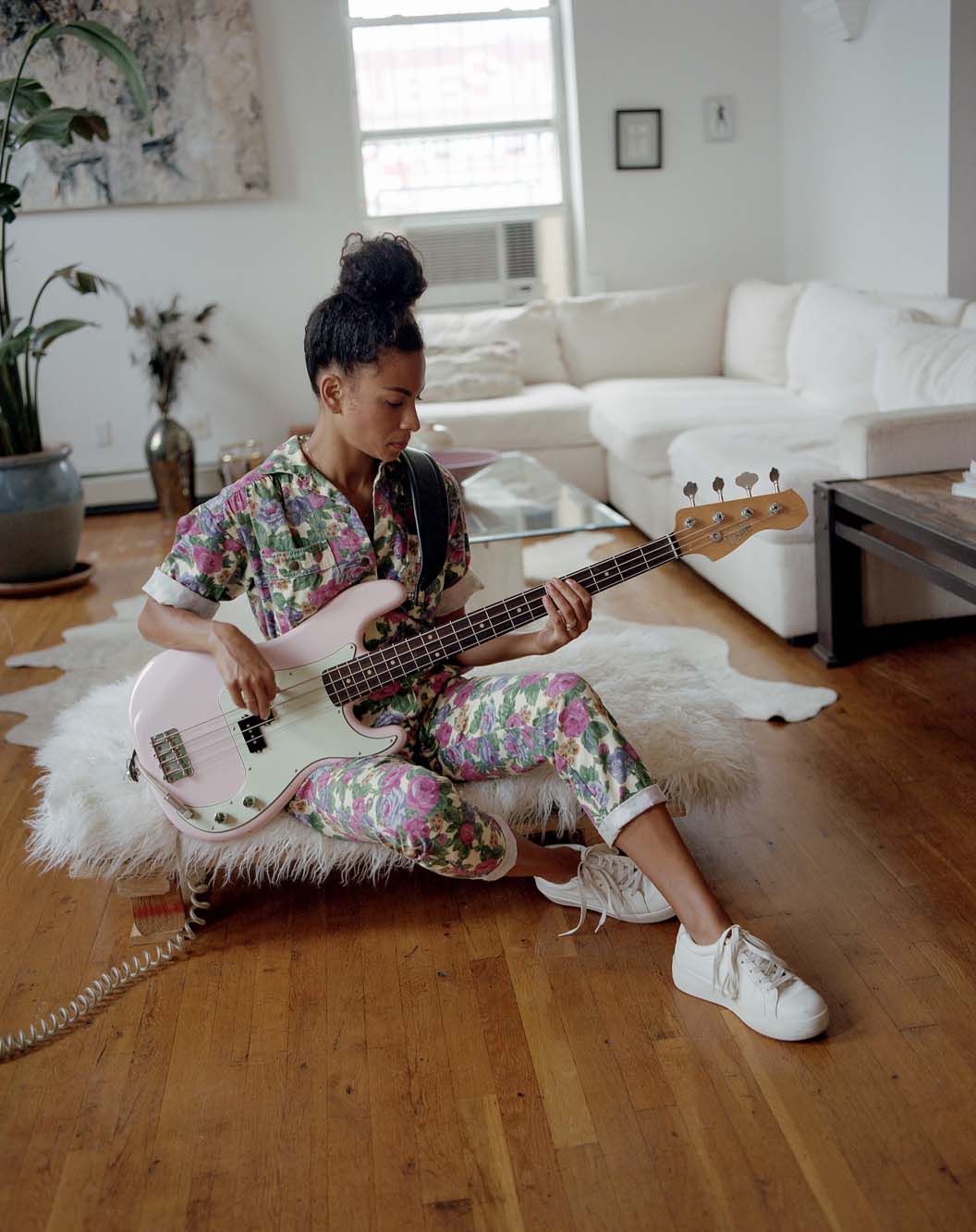
She Shreds: You started singing as a little girl and have been working in the music industry for a long time. I’d love to know about your early years as a songwriter.
Adeline: I have two older brothers and a sister, and all of us play instruments. My older brother was part of a children’s choir, and my goal was to join. I was hanging out with [my brother] all the time. The choir director wouldn’t allow me to join because I couldn’t read, so I learned at four years old. When I was nine years old, a few of us [from the choir] were picked by a producer and recorded an album. I was in the studio all the time, and on tour for about three months of the year.
I picked up a guitar at 15. I mostly taught myself. Right after high school, I moved to New York. It was the classic, “I’m going to live my dreams!” [situation]. I knew I wanted to be a songwriter and performer; I also wanted to find my style. There was an element I needed to find, which was the bass. I wasn’t as connected to the guitar as much as I thought I would be. I joined a group called the Crowd, which was me and two guys. I played guitar. We had a bassist lined up for a show, but they canceled at the last minute. So one of the guys said, “Hey, Adeline, why don’t you just pick up the bass for the show?” And that’s how I started playing.
Wow, that’s so fortuitous. It almost seems random, but you know deep down it isn’t.
Yeah, it’s totally not! When you play guitar, [the bass] is not a completely foreign instrument. After that, my life changed. The way it felt on my fingers, the way it felt on stage, even the way it felt with my voice… The contrast between playing the low notes and singing the high notes was something I fell in love with. So then I kind of locked myself in my apartment for a year and focused on learning how to play.
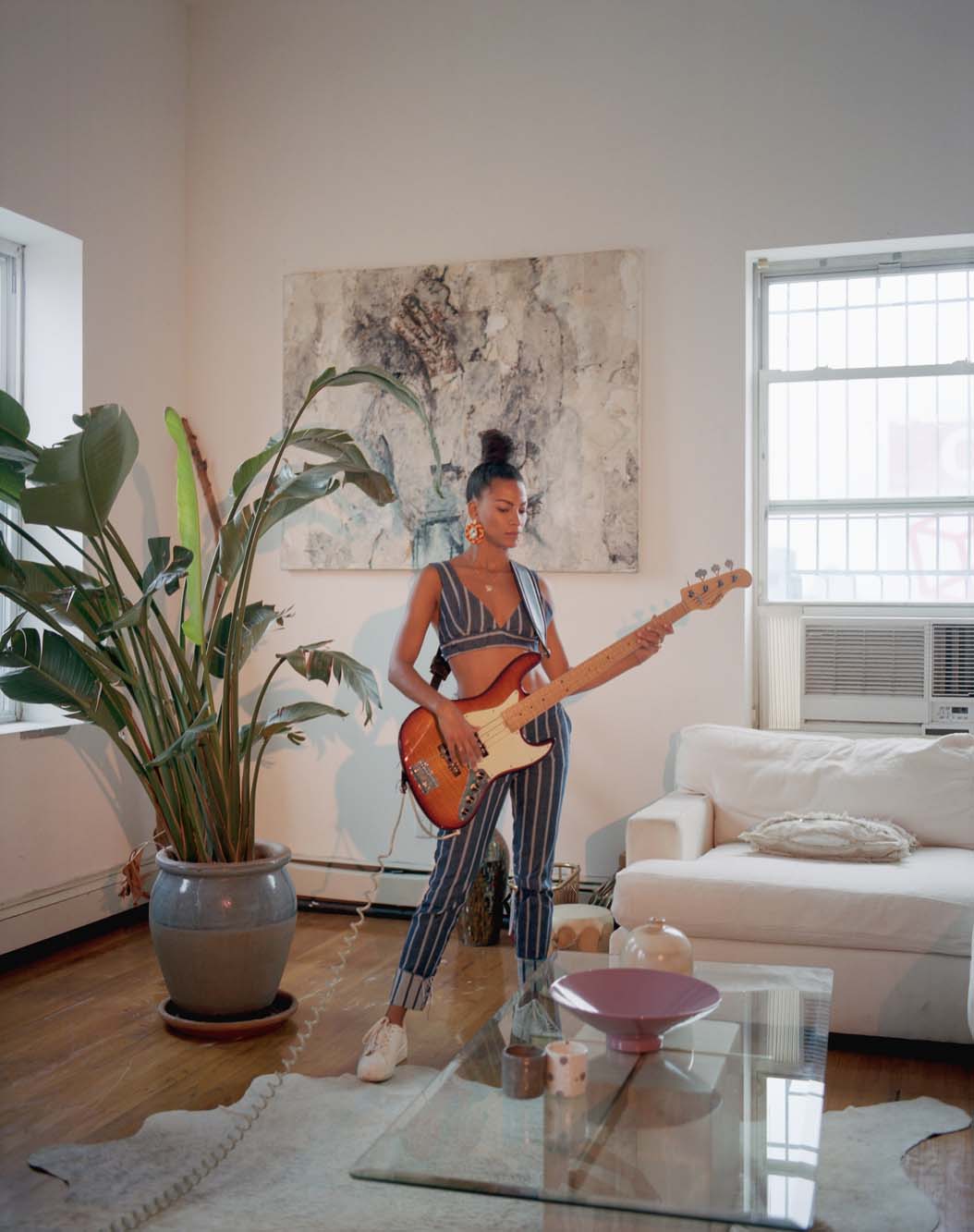
Can you talk about that experience of learning, and how you practice currently?
When I started, I learned very simple songs. I always loved Curtis Mayfield, so I started learning ”Superfly” and his simplest bass lines. I also spent an hour playing scales as part of my practice. I still do that to this day. I started with pentatonic scales, blues scales, then a minor pentatonic scale. I played them over and over, in all directions, then tried to change fingerings. Then I met my mentor, Fred Cash Jr., whose father was in The Impressions with Curtis Mayfield. He saw me play and said, “Hey, do you want me to show you some things?” He was blown away by the varying style I had [laughs], and said, “Girl, you need some help. You need somebody to tell you what not to do.”
I must say, as a woman in the bass world, being outnumbered by men, my experience has been so encouraging. I think people sensed I took it seriously, but they also never judged me and were so willing to share their craft; it was like getting a new network of lovely people.
For people in the audience who are not musicians, generally, the bass player is the side guitar player who doesn’t get attention. We’re okay with that; we are there for the love of the bass, for making everyone else shine, and being the foundation of the band. We’re happy [contributing] without actually getting the credit for it.

I’ve read about the influence of artists such as Claude François on your playing and musical palette. Were there other francophone singers, from France or Martinique, that particularly influenced you?
I’m so happy you know about Martinique! My dad is from there. Our music, which is called zouk, really influenced me. Just this week, I was running and wanted some inspiration, so I put on some zouk. I was listening to the basslines, then I realized there was slapping. Now I know why I am so happy when I slap my bass, because it feels so familiar.
My dad was also a huge reggae fan, so we played a lot of Bob Marley and Lucky Philip Dube—a South African reggae singer whose music had an African influence—at home.
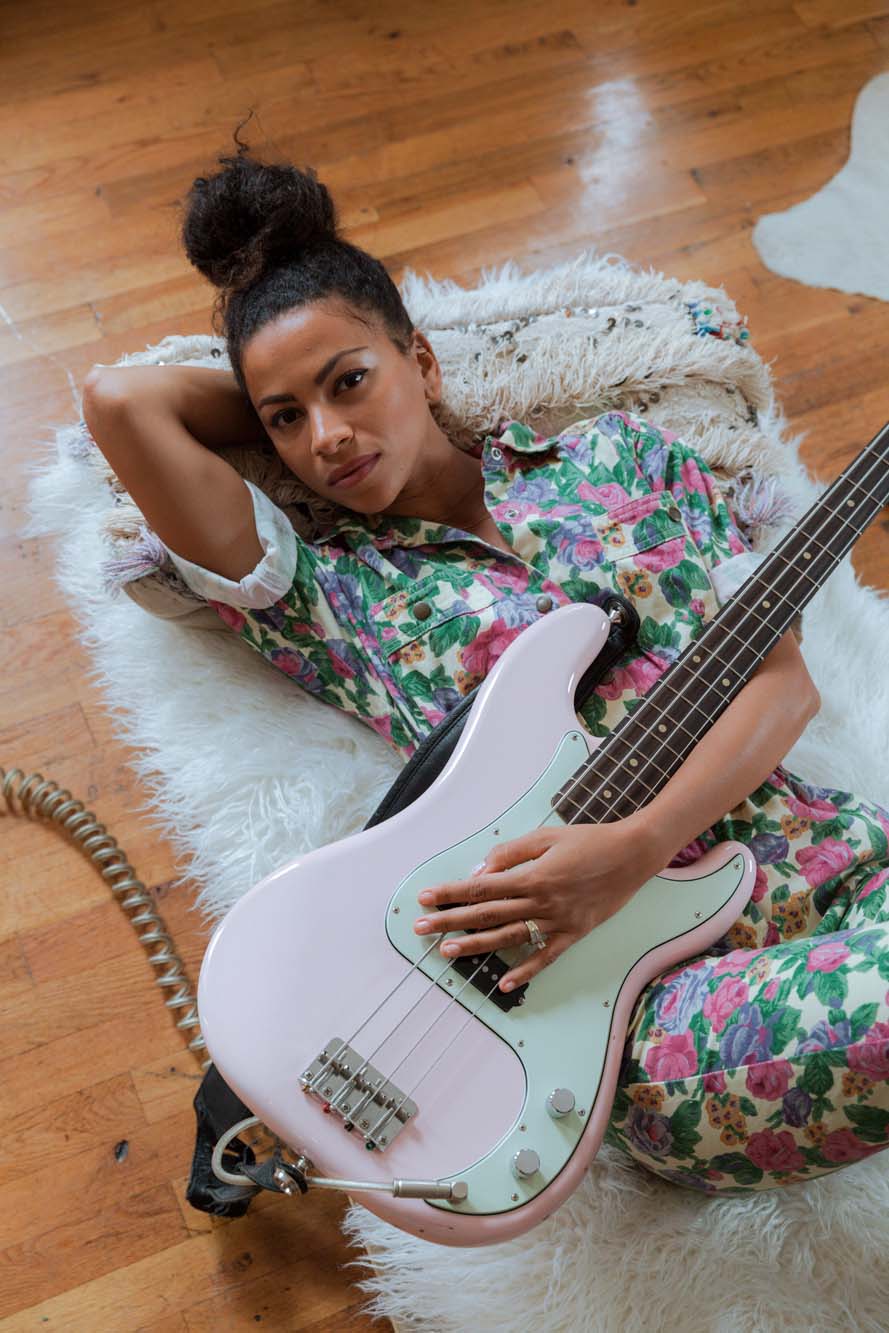
In your song, “Cafe Au Lait,” you sing, “Car je ne sais pas me taire” which means: “Because I can’t keep quiet.” I was wondering if with that lyric you were alluding to Martinique.
When I say that, I mean that I have a big mouth and say what I think. It’s very political, written from the perspective of a young mixed daughter of an immigrant, Creole Caribbean, but also from the projects in France. But it’s also from the perspective of being determined and looking for my voice and sound.
There’s a thing about growing up in France that’s very enabling as an artist. The poetry in our language and the allowance we have for expressing our feelings and emotions [is so great]. But in terms of confidence? It’s still a concept that’s perceived as slightly negative in our culture. It’s [discouraging] when you’re trying to become someone who wants to go on stage and perform in front of people. As a teenager, I had a strong but high-pitched voice, which got made fun of a lot. With “Cafe Au Lait,” I’m saying, “If I sing too loud, I have to go somewhere else.”
Did moving to New York enable you to process that and accept your voice?
Absolutely. I feel very thankful [that] I had the right combination of growing up in France until my late teenage years and then moving to the United States as an adult. The combination of the two was a good mix in terms of affirmation, inspiration, and upbringing—a good mix of two opposites.

I want to ask about disco’s influence on you in particular. I’d love to know your thoughts about the genre and how it influenced this record.
My biggest introduction to disco was through Escort. I was looking for my sound at the time, and my style. I wanted to be moving, dancing, and singing on stage. However, I didn’t want to necessarily do modern pop music. I got a call to join Escort, listened to the record, and thought it was amazing. I was familiar with disco, always loved Donna Summer. I wasn’t playing much bass at the time, but when I started playing with Escort I found myself as a performer, singer, and bass player. Disco was the good combination of all the things I wanted to do as a performer and musician.
Did you work with other people or by yourself for your solo record?
[ad-uh-leen] was 100% by myself and Morgan Wiley, an amazing keyboard player who works with Midnight Magic, another disco band in New York—Escort and Midnight Magic are like one big extended family. I played bass on all of the songs, and Morgan played keyboards, but we kept some of my really poor keyboard [playing]. We also had Jim Orso on drums, and JKriv and Jaleel Bunton on guitar.
I had a lot of tracks that were already done and called up Morgan, because he has a broad knowledge of different sounds. It’s amazing to meet someone you can work with who 90% of the time makes the same choices intuitively. Initially, I just had him play on “Cafe Au Lait” and “Satellite,” but the chemistry was great, so we ended up making a whole album. A third of the album is tracks we wrote together from scratch, the other third is made up of songs I already had done, and the last part was [comprised] of tracks he had that we listened to together and I fell in love with [and] then later worked on.
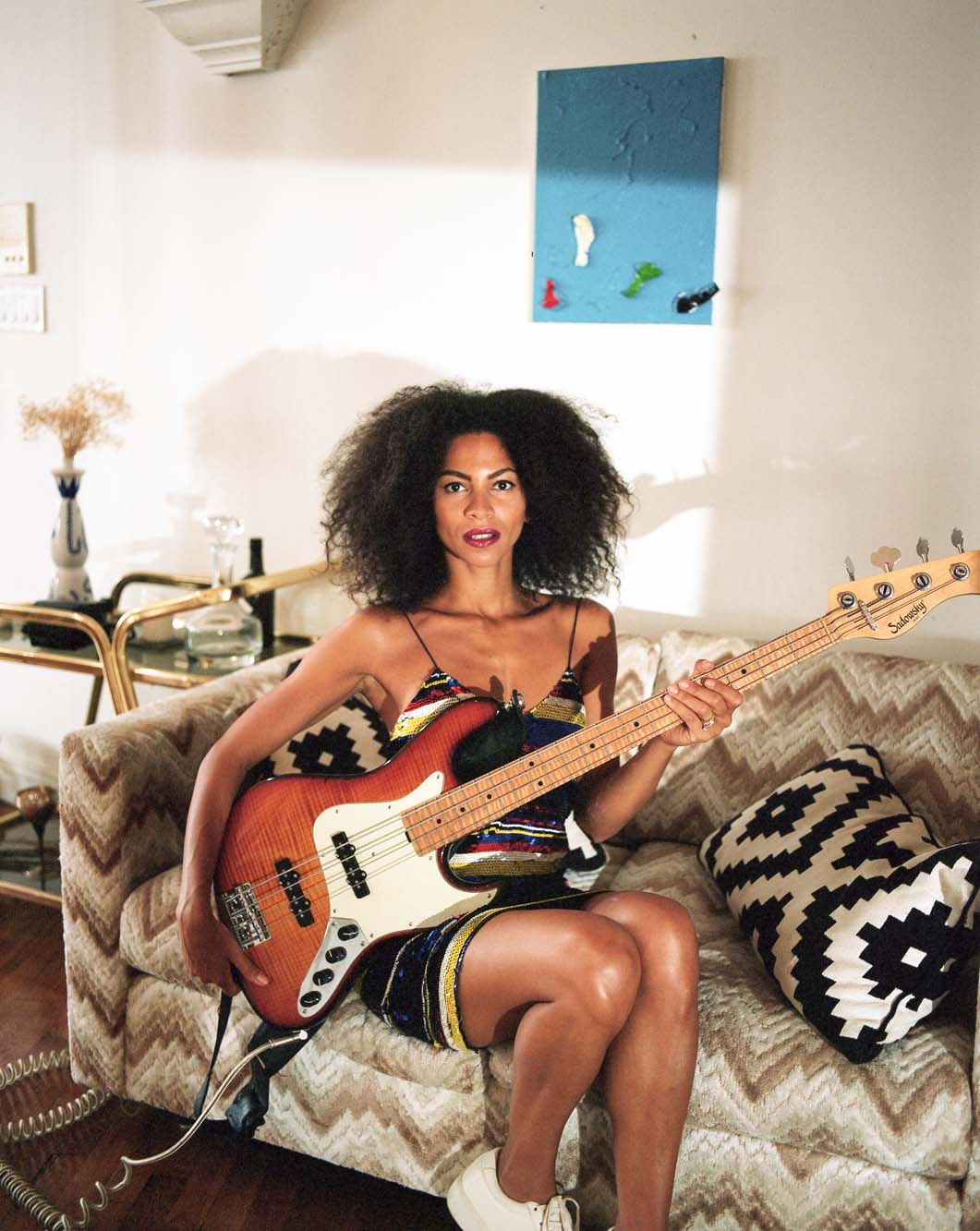
That’s wonderful, like finding your musical soulmate. To have someone that gets your sonic palette is so rare.
Totally. I didn’t know that that would happen. At the time I was resigned to making the album by myself. It was going to be a six-track EP because I already had a few tracks and figured I’d make the sound levels better and give brighter colors with the keyboard. Everything shifted after we wrote the first song together—so yeah, it is like finding your soulmate. It is all based on intuition and what sounds and feels good to us.
You mentioned playing some of the keyboards. With regards to your bass, did you end up playing any bass on a Moog, or did you run your bass through effects pedals?
On some songs, I played key bass and used a MIDI controller, then played the bass lines on the MIDI controller. Then I tweaked songs on Logic or Decapitator. For live bass, I didn’t use pedals, except for “Cafe Au Lait,” [on] which I used a filter pedal here and there. That’s the fun thing about Morgan; he has so many triggers, so I didn’t really have to use a lot of pedals. For us, it was more about getting the ideas out, the feel of the bass right, and then tweaking the sounds after.
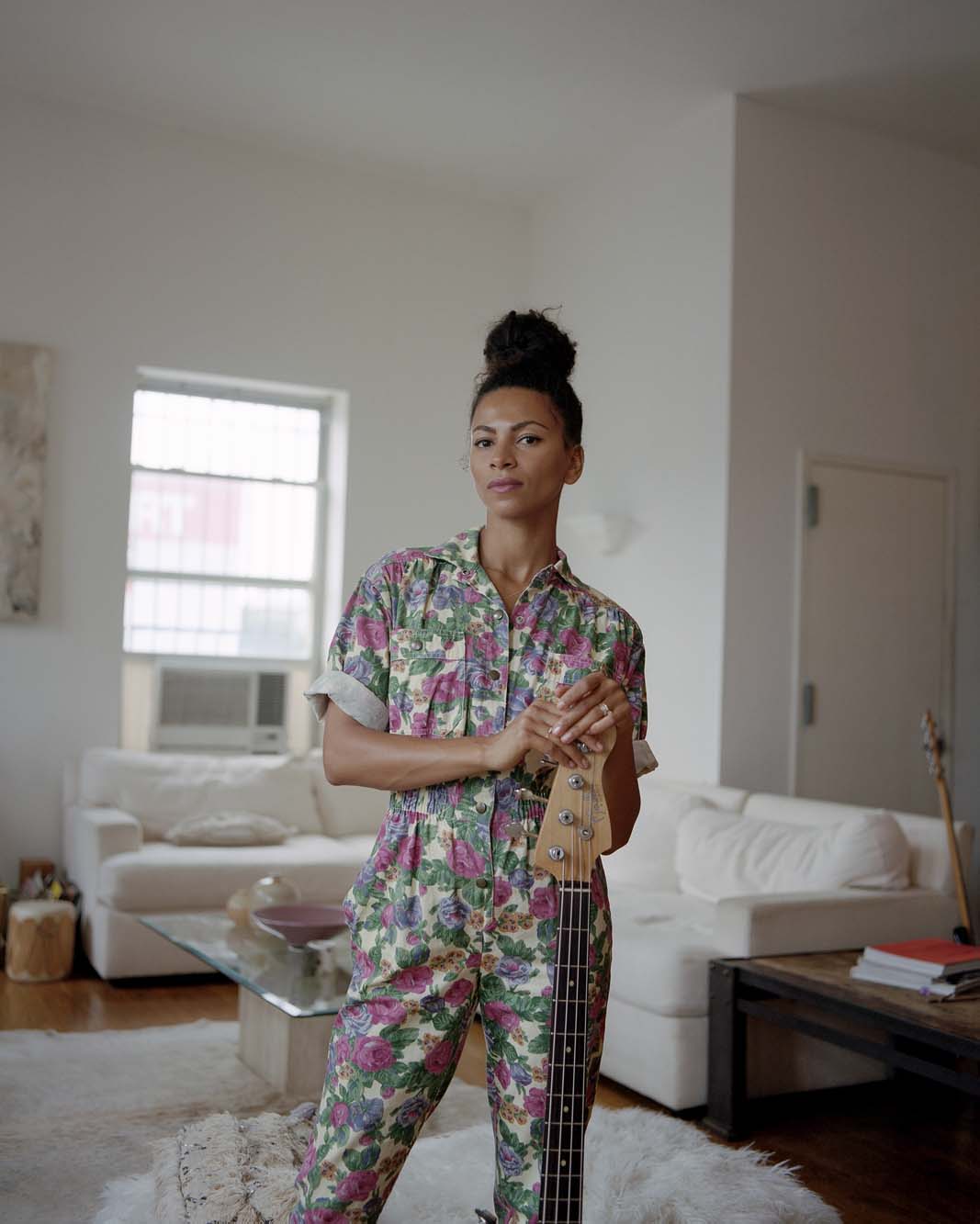
How did this record come together and what motivated you? How have your motivations changed as you’ve produced the record and iterated upon the songs?
I started producing my tracks about six years ago. However, I wasn’t releasing them. I didn’t know how to approach it. I was busy with Escort and honestly, I was scared. I had a lot of discovery to do as a writer and musician and needed to find myself. And then Prince passed away. He was my ultimate favorite artist. I saw an interview with Stevie Wonder on TV where he was asked what he admired most about Prince. While crying, he said he admired that Prince was fearless. He never cared what someone thought of his music. He said that when you let fear into your creativity you lose yourself. This resonated with me so much. It was a giant slap in the face. After that I said, “Ok, that’s it. I’m going to make my record and promise myself that I will not think or care or be afraid of what people will think. I just have to make it the way I like.”
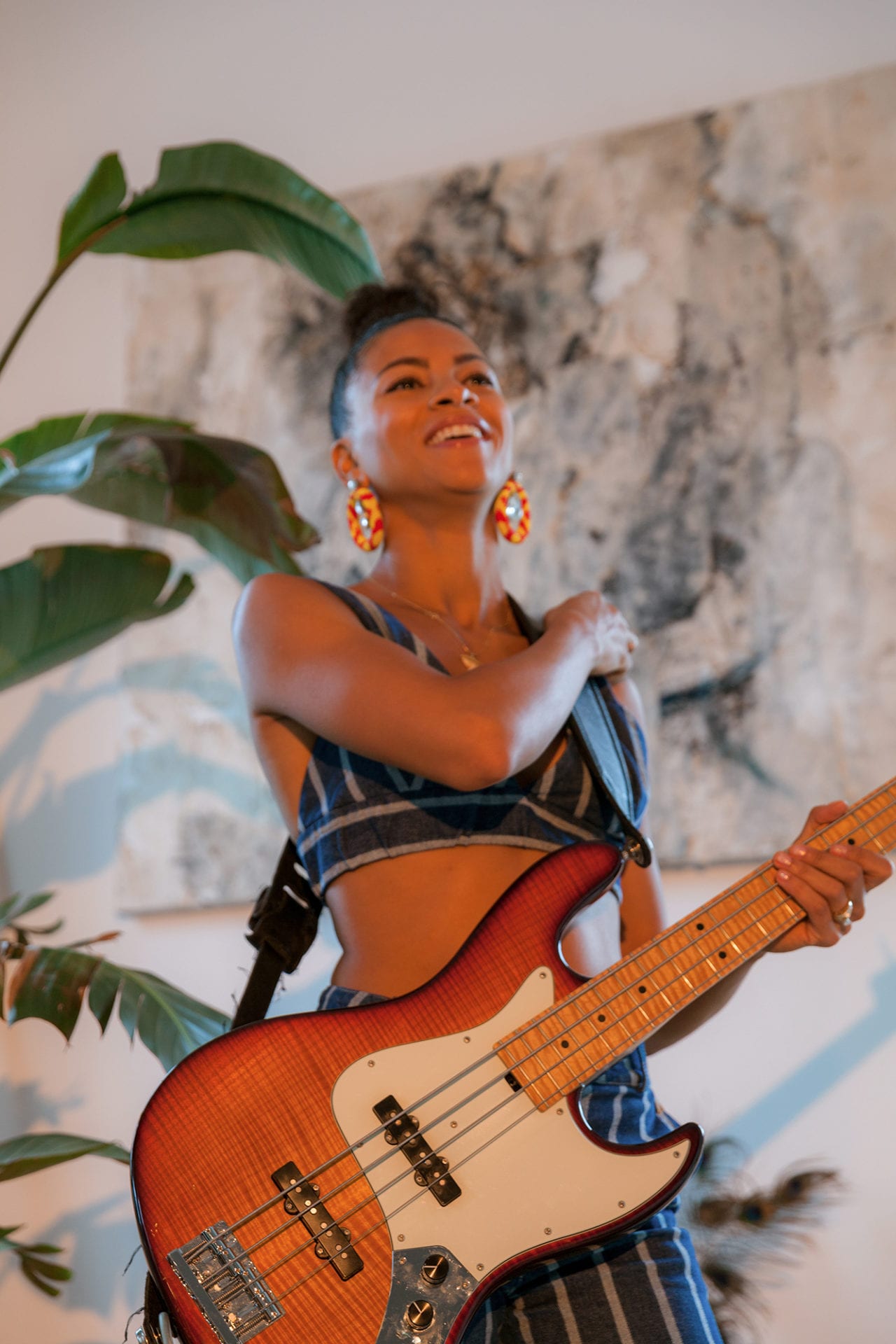
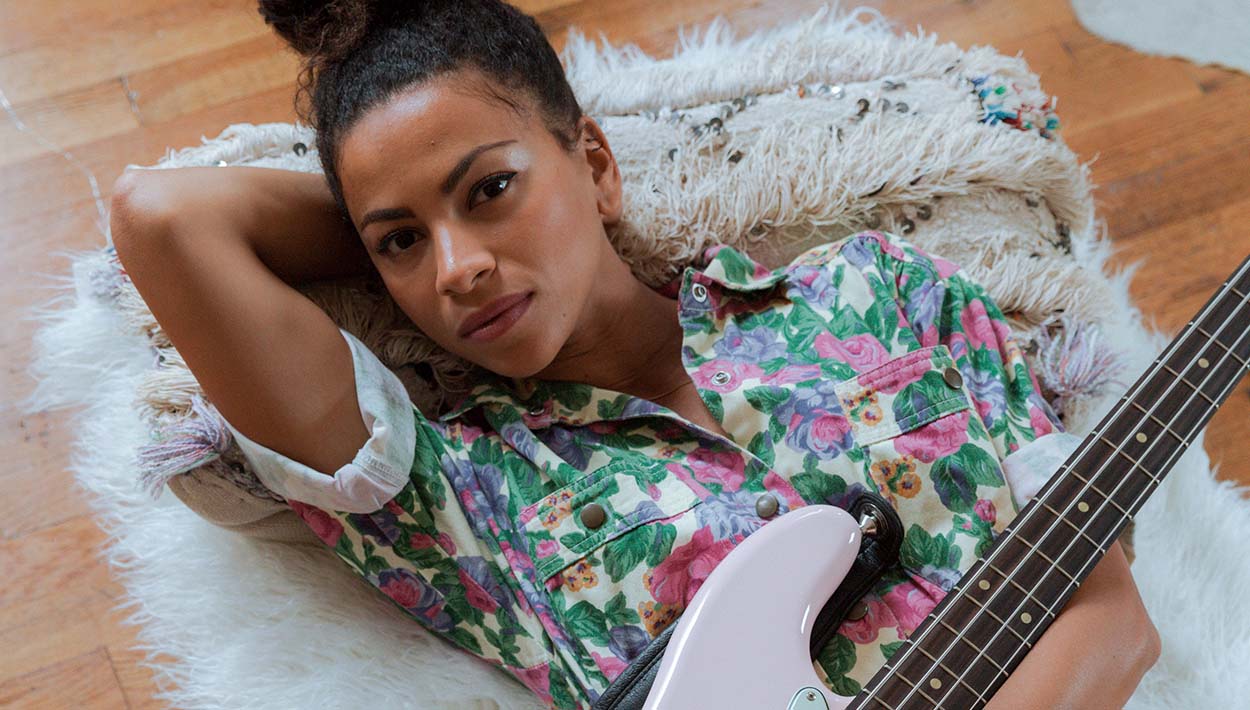

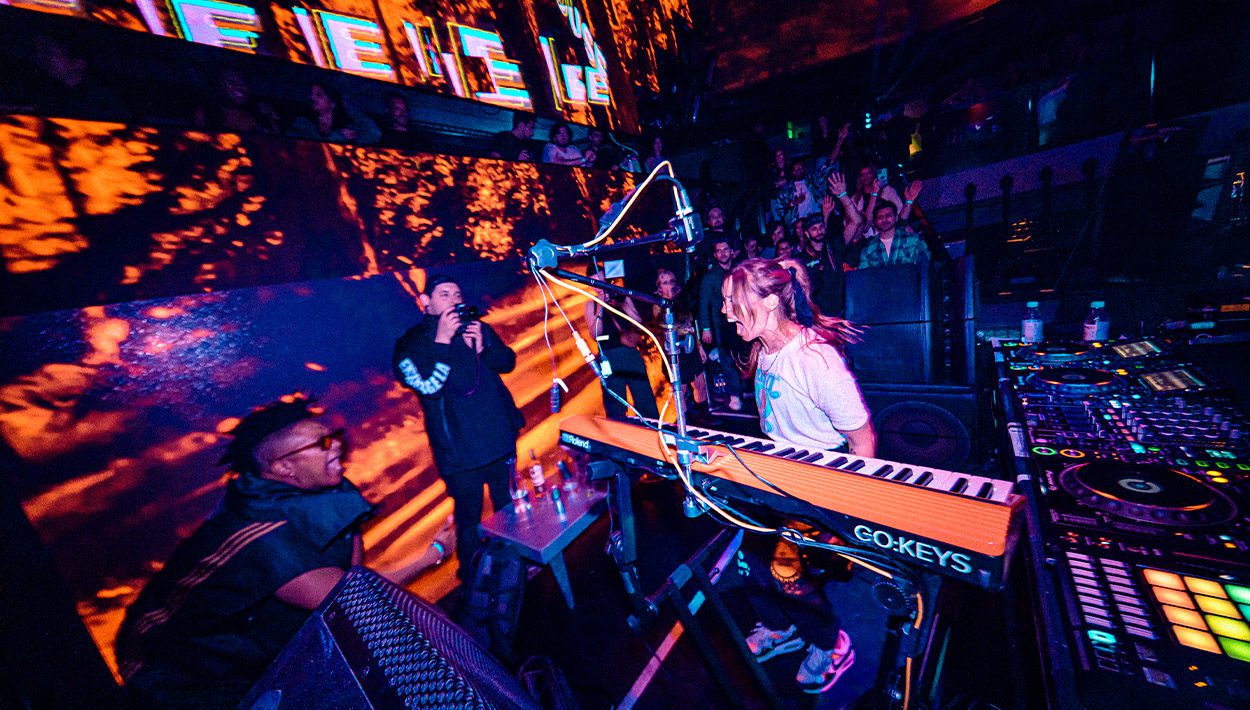
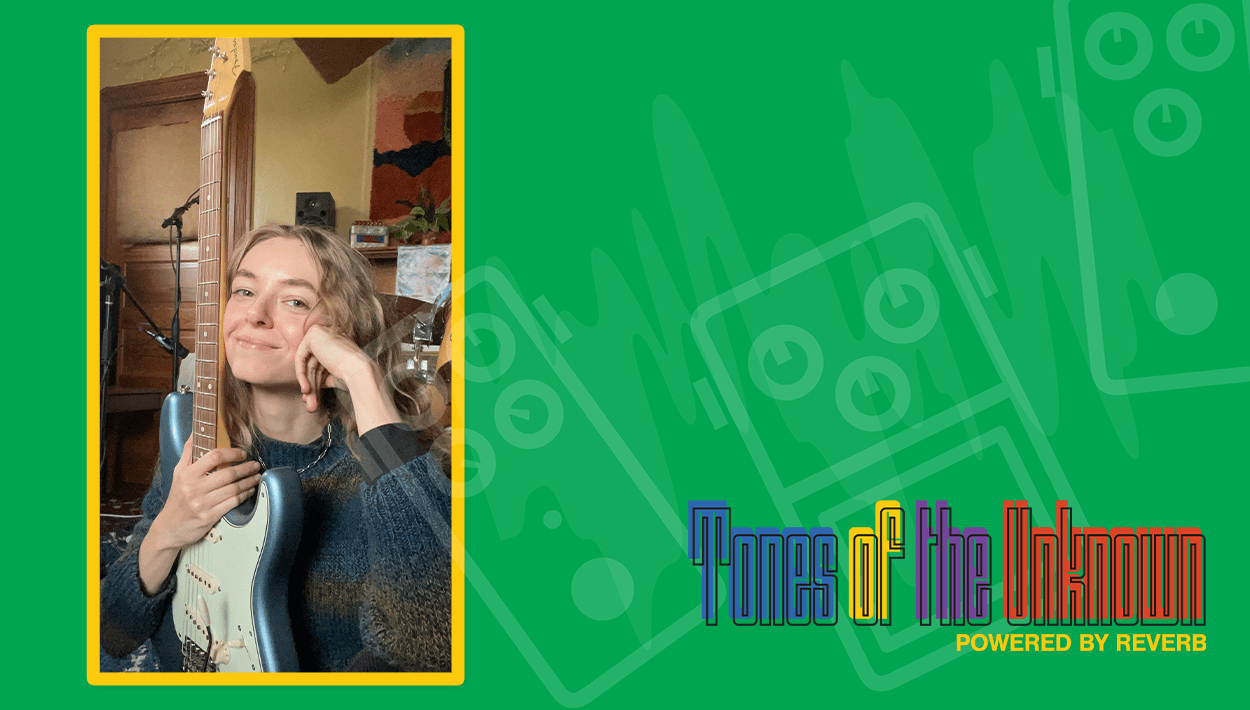
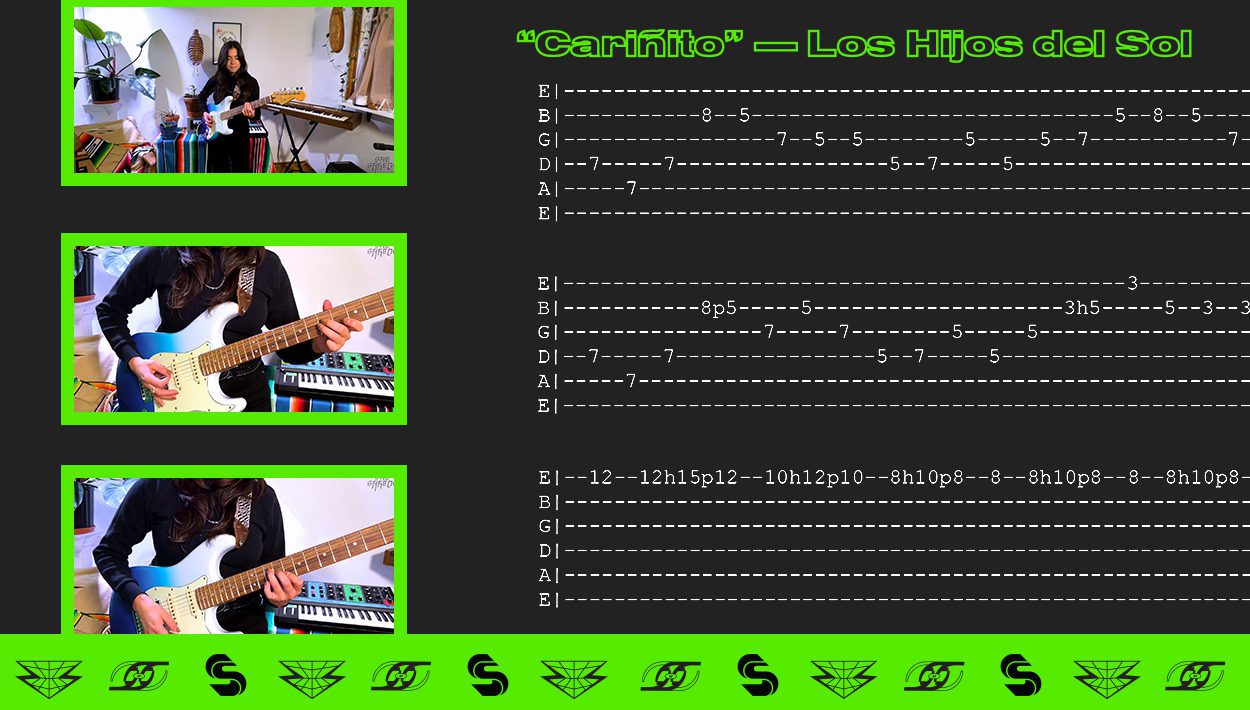
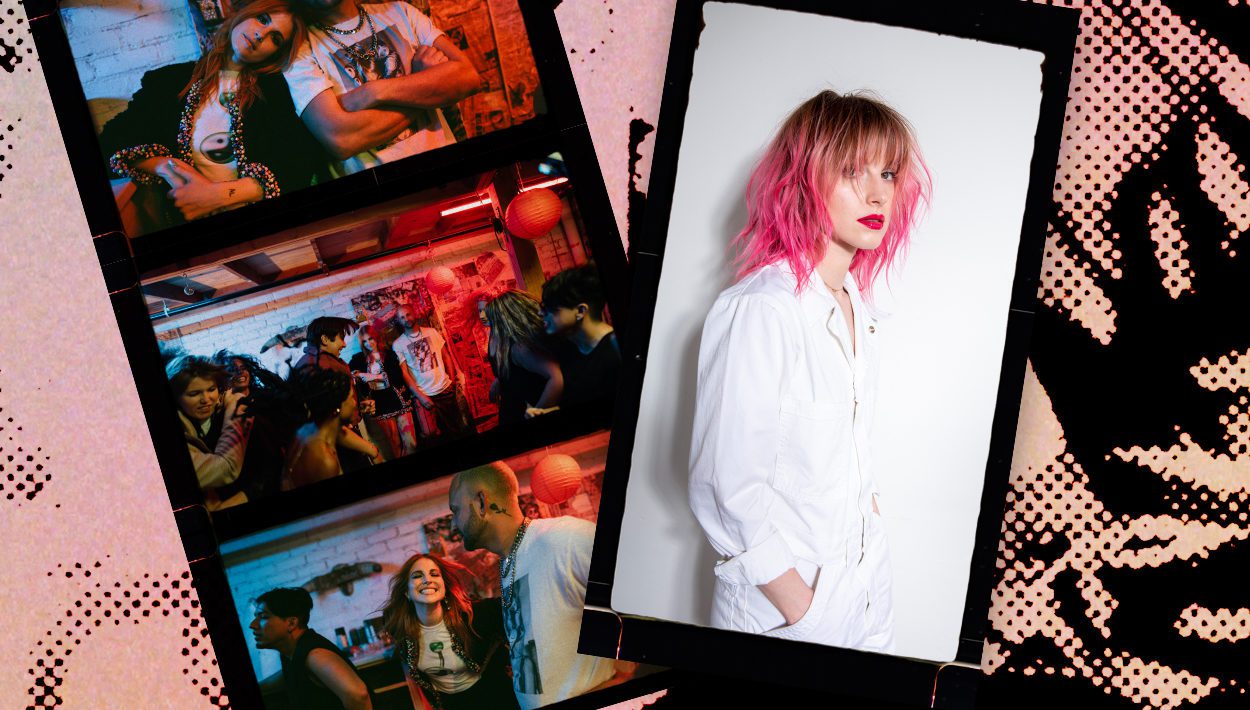
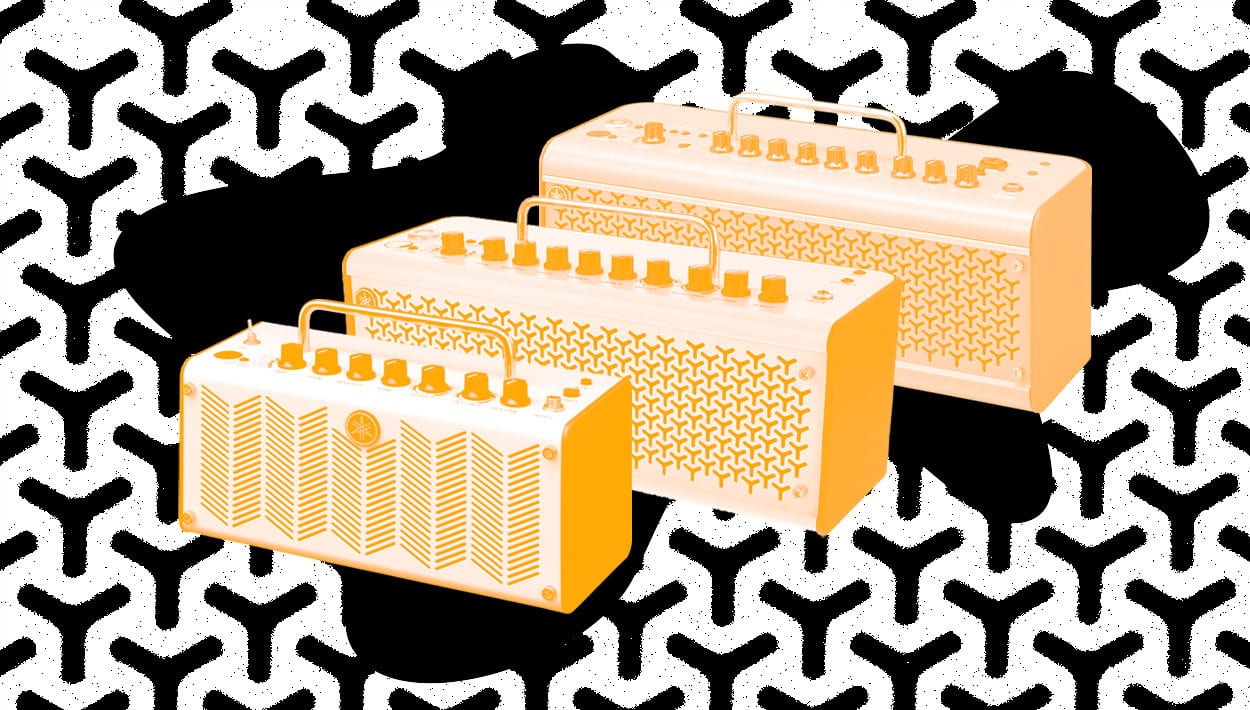
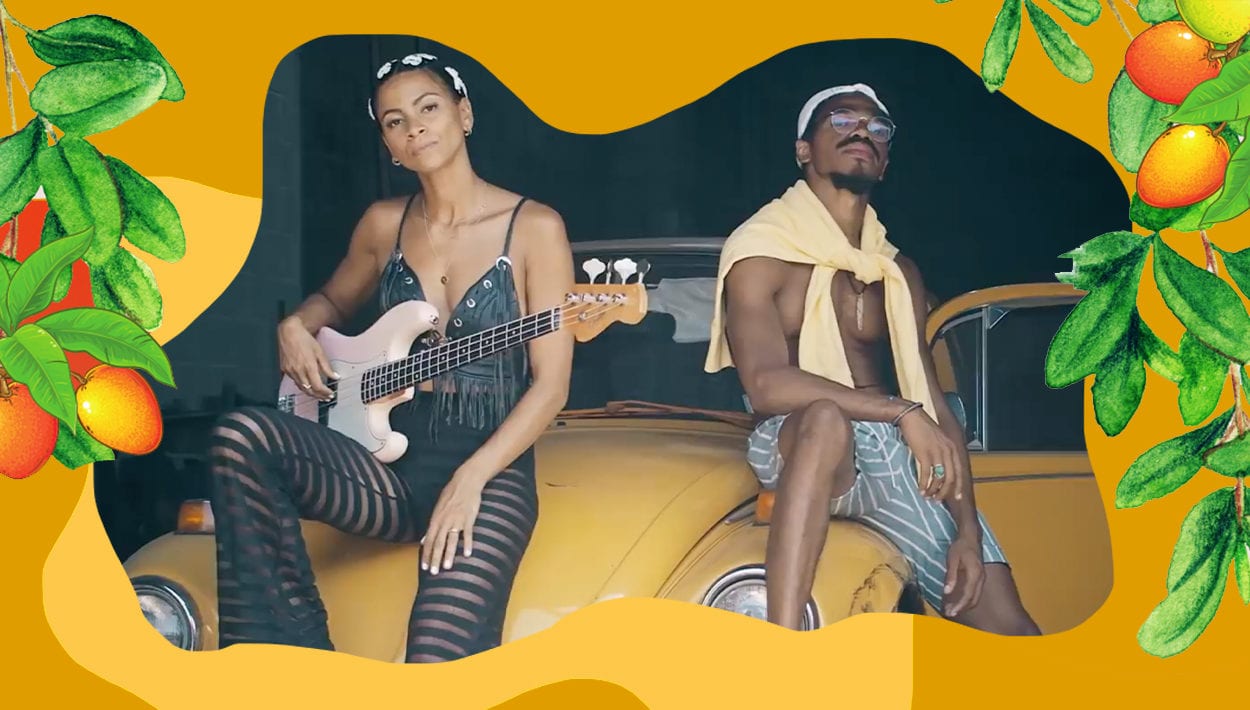
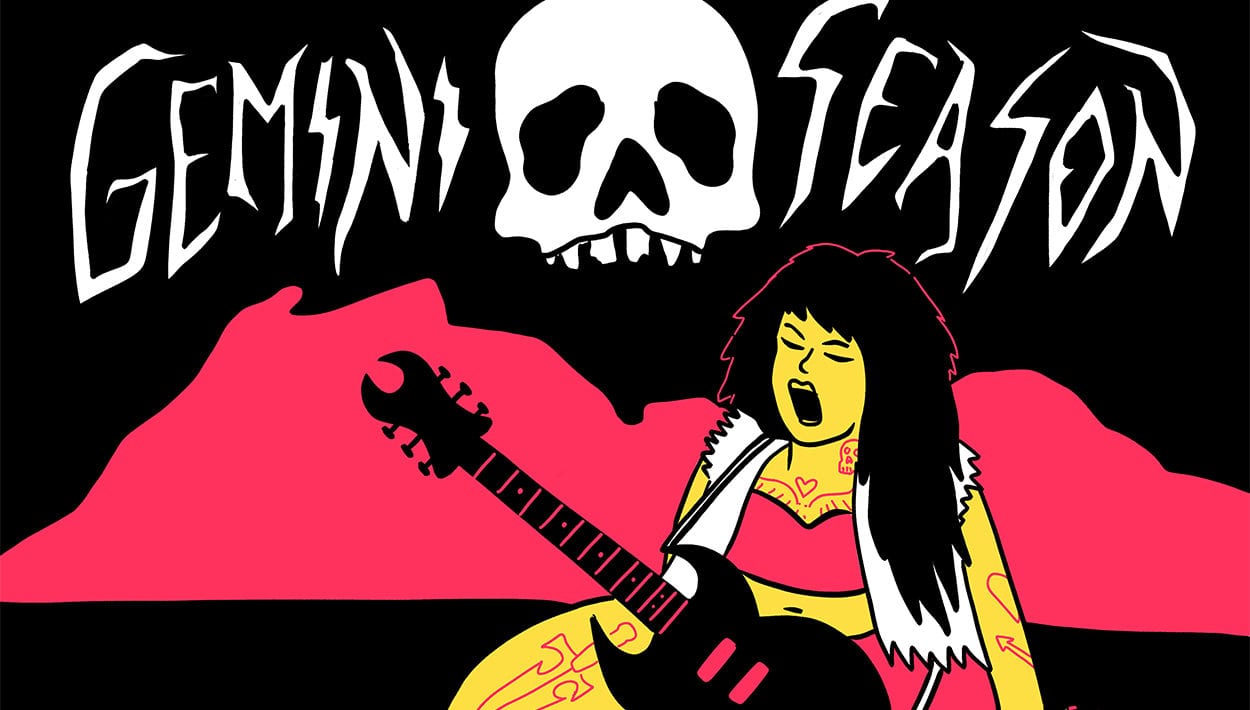
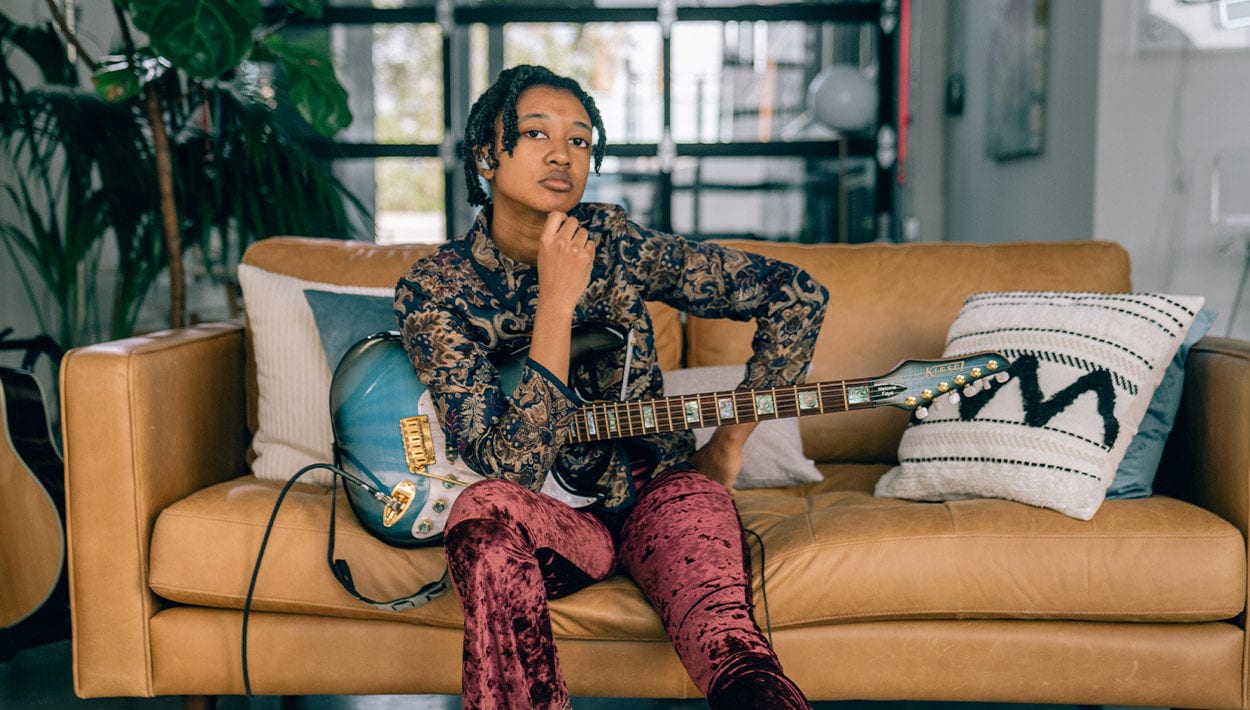
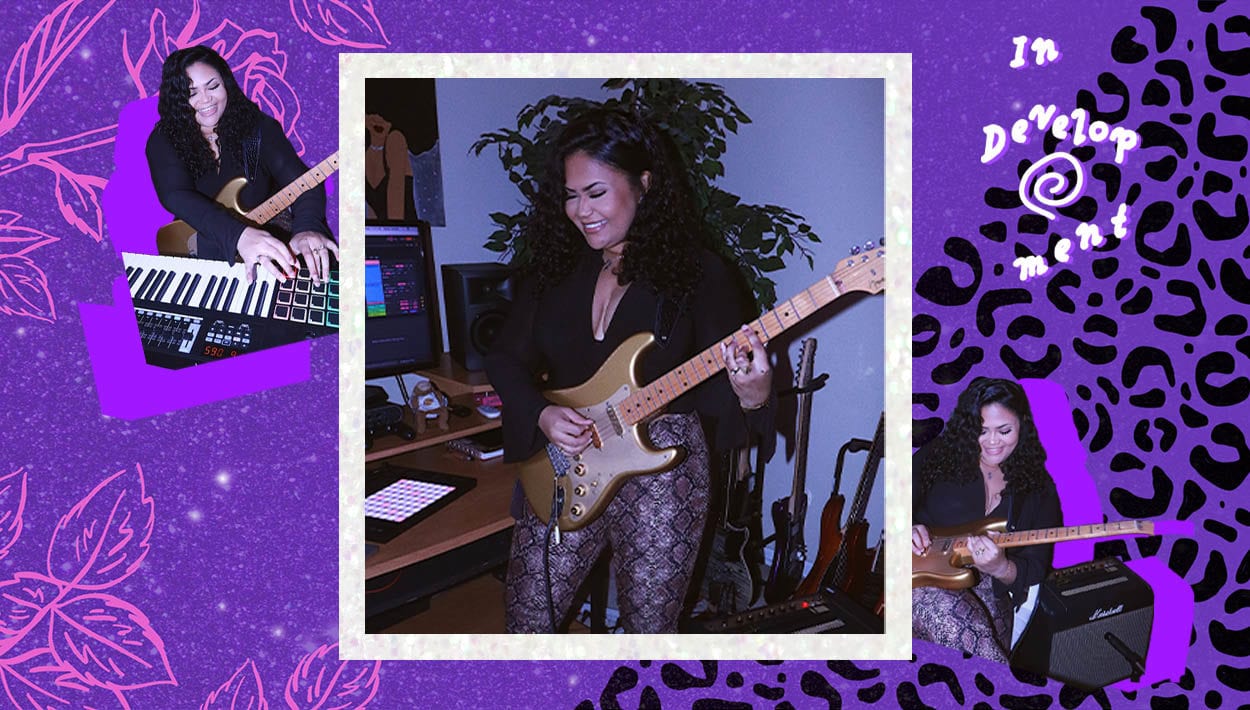
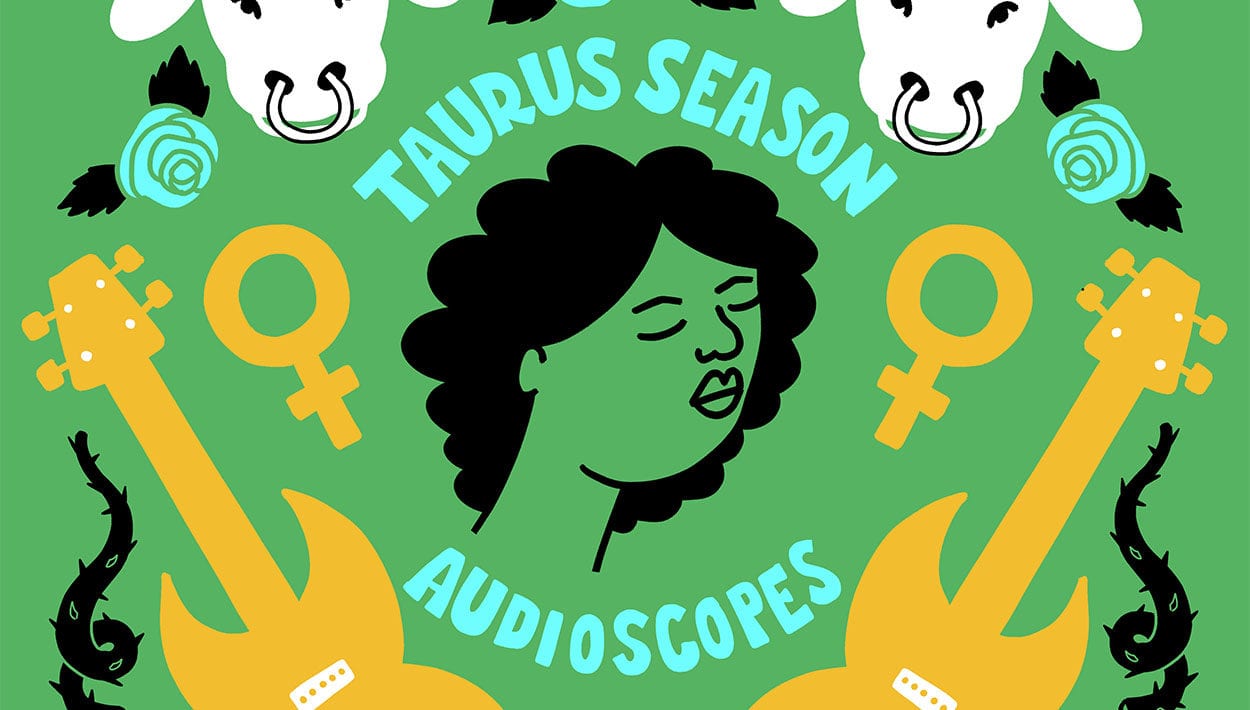


Comments
[…] and eschewing selfishness in service of full potential and growth for one another. Adeline, our Issue 16 featured artist, accompanies KAMAUU with her impeccably groovy bass lines and divine vocals that hit heights us […]
Pingback by She Shreds Media on June 4, 2021 at 7:28 amA smack to the face, indeed. I then said, “Alright, that’s it. I’m going to commit this to paper and tell myself that I don’t give a damn about what other people think. The only thing I have to do is customize it to my preferences.
Comment by Phrazle on November 27, 2022 at 11:35 pmShe is classically trained as a vocalist and gained experience as a singer and bass player in New York, with notable roles as the subway surfers front person for the band Escort and as a bass player for CeeLo Green.
Comment by Jaclsoner on January 10, 2024 at 12:01 am